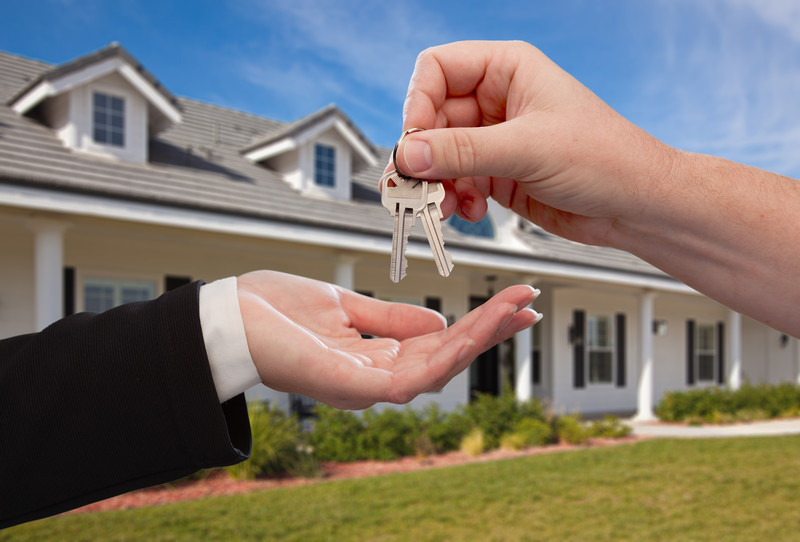From lavish condominiums to comfortable HDB lofts, Singapore’s housing market offers a large number of choices. Regardless, first-time buyers might find it overwhelming to explore the regulations and procedures.

Who can buy property in Singapore
Your age and citizenship status determine your eligibility to purchase real estate in Singapore:
Age
The age requirement to acquire real estate is 21. To hold the property for minors under 21, parents or guardians may, however, use a trust arrangement.
Nationality
Restricted areas apply to non-citizens and permanent residents. Typically, they are prohibited from acquiring landed properties such as terrace homes and bungalows. But, under certain restrictions, they can purchase condos and sell HDB apartments (public housing).
Comprehending the property environment
Learn about the many sorts of properties that are available in Singapore before you start the buying process:
HDB apartments
Public housing that is subsidized is provided by the Housing & Development Board (HDB) and has a 99-year lease. These very reasonably priced apartments include government grants and subsidies for qualified Singaporeans and PRs.
Executive condos (ECs)
An amalgam of private condos and HDB apartments. They have minor resale limitations, although they provide longer leases (between 60 and 99 years) than other HDB apartments.
Private condominiums
These are openly purchased and sold flats with different types of leaseholds or freehold ownership. Bungalows, terraces, and semi-detached dwellings fall under the category of landed property. Leasehold condominiums have a fixed lease length (often 99 or 999 years), whereas freehold condos allow ownership for eternity. Purchasing a landed property is heavily restricted for foreigners and PRs, sometimes needing special clearance.
Journey to ownership
There are many clear phases involved in purchasing real estate in Singapore:
Evaluation of finances
A realistic evaluation of your financial capacity forms the basis of each real estate acquisition. Take into account elements such as loan eligibility, the down payment (usually 5% for private houses and 25% for HDB apartments), and recurring expenses like as property taxes and maintenance charges. You may estimate your budget with the aid of many online affordability calculators.
Research on properties
Start your property hunt with a clear understanding of your preferred location and budget. Available listings are displayed on well-known property websites such as PropertyGuru [PropertyGuru Singapore]. It might also be quite helpful to speak with a licensed real estate agent. Regarding certain regions, kinds of properties, and current market trends, they might provide insightful information.
Funding options
Get bank loan permission before making any proposals if you need loan funding. Know the current credit terms, loan costs, and any additional costs like processing expenses. Foreign purchasers should be particularly aware of the Additional Buyer’s Stamp Duty (ABSD), which raises the absolute expense of the acquisition.
Placing an offer and completing the purchase
When you’ve located the perfect home, sign an Option to Purchase (OTP) and make a formal bid. For a limited time (usually 14 days), this paper gives you the exclusive authority to negotiate the acquisition. Once your offer is accepted, get a knowledgeable attorney to create the Sale and Purchase Agreement (SPA). The terms and conditions of the purchase are set out in this legally binding agreement.
Transaction completion
Meeting a variety of financial and administrative criteria is the last phase. These include clearing additional costs, getting the bank to release the loan, and paying stamp duty, which is a levy imposed on real estate sales. Your attorney will take care of title transfers, property inspections, and communication with pertinent authorities to guarantee a seamless handover.
Crucial things to think about while purchasing
Here are a few other things to consider in addition to the fundamental steps:
The cooling-off period
You may back out of the purchase with little penalty within the 14-day “cooling-off” period after signing the OTP. This time offers a chance for last-minute investigation or unanticipated adjustments in your situation.
Income taxes
Taxes relating to real estate should be anticipated. Buyers’ stamp duty applies to all acquisitions. International buyers may also be subject to an extra layer of ABSD based on the kind of property and their residence status. In addition, a yearly property tax is assessed according to the value of the property.
Federal grants and assistance
Singaporean nationals and permanent residents who buy HDB apartments may be eligible for some government incentives and subsidies, which drastically lower the initial cost. Examine the Housing & Development Board’s (HDB) resources to find out whether you qualify.
You may also find these articles helpful
Education in Singapore – Expat guide
